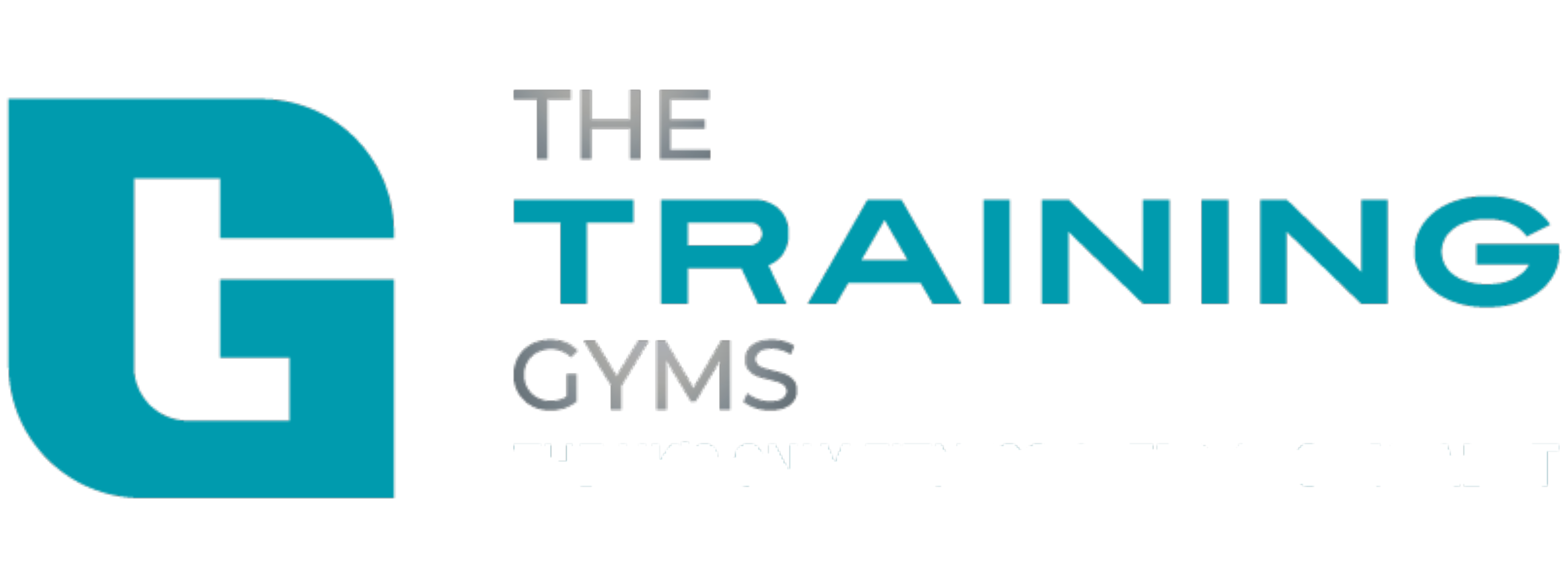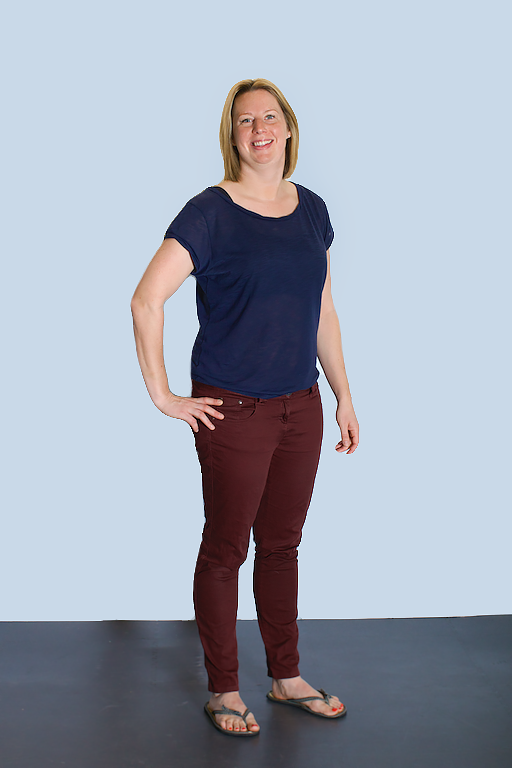You will have probably read/listened to Mair Evans' interview where she describes her great weight *loss and how she has achieved it. We thought it worthwhile recording a podcast, where we delve deeper into HOW she *lost her weight, and the 3 most important aspects to her transformation. Click the audio to listen to it above, OR read the transcription below.
Mark: Hi, this is Mark and Steve Gray from the DVCC, the only transformation centre focused on fat *loss and toning outside of London.
So, we’re aiming to bring you over these next few weeks real world case studies about clients and their amazing results. We’re going to explain how they’ve achieved such good results and also hoping to give you ways that you’ll be able to achieve the same. So we’re going to basically take their results, take what they said that they have achieved and what they think are the biggest turning points in their transformations and then kind of expand on them to hopefully give you a little bit more context and a little bit more ability to mimic what they do even, you know, whether you’re living in Bedfordshire, Milton Keynes or Thompson and around one of the centers or, you know, we have listeners in Australia and obviously we don’t have centres in Australia, so we hope to help you.
So, first thing’s first, Stephen is going to give you a little bit of background on Mair, basically her story.
Stephen: Okidoki. Hello everyone. So, Mair has been a long time client to the centre. She’s been training from the very start actually with a period of about a year and a half where she stopped to train for marathon, the London Marathon and she went and trained just because she couldn’t really exercise that much. She’s doing a lot of running and everything, working, went to a normal big box gym. But since starting exercising with us, she’s *lost over 4 and a half stone.
Mark: Actually, she -- I actually trained Mair maybe when I’d first started out personal training. So before we setup the DVCC, she had kind of just got out of university. So, yeah, since that kind of time, like Stephen says she’s *lost 4 and a half *stone, with her section between where she ran the marathon like he says and then recently, she was specifically focused on her wedding.
So you can also -- you can see Mair’s account, we’ll link to it in this article, her podcast where she’s interviewed is titled How Mair Ensured She Will Look Stunning on her Wedding Day because it was coming out to her wedding.
Stephen: Which she did because we were there and it was a lovely day, wasn’t it?
Mark: Yeah. In fact, I think -- we went to her wedding and a few guys from the DVCC went to her wedding and I think she looked the best she’s ever looked actually. I mean, I’ve seen her - she looked great at her sister’s wedding also but for her wedding, I think she’s at her leanest, her most healthy…
 Stephen: And I think happiest.
Stephen: And I think happiest.
Mark: Yeah.
Stephen: I mean, dressed to her most comfortable which was important.
Mark: Yeah. And I think most able to keep it in part of her lifestyle.
Stephen: Yeah.
Mark: And not shown by the fact that she got down to her aim which was a certain body fat percentage. But now, even after her wedding -- because you’ll find a lot of people sometimes when they have big goals wanted to hit those goals, they kind of relax and, you know -- it’s not even relax, they just kind of…
Stephen: Don’t set a new goal.
Mark: …don’t set a new goal basically, but Mair, she’s gone straight into setting her new goal and she wants to only improve and get better which is brilliant because I said to her this is just -- you know, she never goes past this. She always looks this healthy and this good.
Stephen: And actually, that’s just a side point, really we’re going to mention that but one of the key points I think there is that Mair set herself a target and set herself a clear goal, wrote it down and had a real target and goal to actually achieve something and it does make a big difference and it’s actually documented. Writing down a goal or target makes a big difference whether you’re going to achieve it. And so that was one of the key things that Mair did straight away.
Mark: So let’s go back to her article and basically, we want to take a little bit out of what she said helped her. I’m going to read a little bit from her -- in her words. So I got back into exercise pretty quickly but my major thing is breakfast because I never really used to eat breakfast when I was growing up. So it’s probably my diet that took a little bit longer to fully flow into place. And then I asked her what she has for breakfast now and her answer was chicken.
So I want to expand on the point and I want to basically help you if you’re in the same situation as Mair where you don’t have breakfast or you don’t know what to have for breakfast. Now, don’t get wrong and think you’re going to have to have chicken. Mair is -- I can’t have chicken for breakfast, I just, you know -- it’s 6:00 AM in the morning, I don’t feel like having chicken but I do always have breakfast. And the key to what Mair does now and what most people achieved that transformations is she starts her day with a high protein breakfast. So, Stephen, expand a little bit on that.
Stephen: Why it’s important? Well, it’s particularly important for fat *loss because basically what will happen is you’re going to establish your blood sugar regulations at the very beginning of the day. So if you’re having something that’s high GI, something that’s typical like a breakfast cereal of some sort, what you’ll find is that your blood sugar is going to take a big nose dive maybe an hour, an hour and a half after having had that for breakfast. And what you’re going to find is you’re craving sugar throughout the rest of the day, so you have this kind of up and down pattern of blood sugar which is going to mean that A, you’re craving sugar throughout the rest of the day, so you’re more likely to eat it but B, you’re actually going to be making yourself more insulin resistant, basically less able to tolerate carbohydrate and more attune to storing body fat than *losing it.
Now, what’s about people that say they don’t have a high sugar breakfast because they don’t have any breakfast at all, well, again and this has been around for quite a while now, what you’ll find is that it’s important to establish like I said that blood sugar and to get your energy levels, your blood sugar levels up as early as possible. I know a lot of people have started on this 5 to 2 and talking about intermittent fasting, I just want to -- you can actually link to it, that’s another podcast we’ve done specifically about that type of short-term diet, 5 to 2 diet where you’re supposedly intermittent fasting, you’re not intermittent fasting there. The true intermittent fasting is completely different. You’re actually intermittent dieting by doing that. But that they don’t need to eat.
But there’s actually studies shown that people that missed breakfast will end up eating more in the rest of the day. So actually, by having a good breakfast, you’ll find that you actually, calorie wise, you do eat less and better choices throughout the rest of the day.
They’ve done a lot of different studies on this. I think they did one with children. I think it was in Ireland, if I’m correct, and basically found that children that had a good quality breakfast that consisted of good high quality protein found that their energy levels but their behavior levels were much more stable through out the rest of the day. And actually, the thing is most people listen to this would be adults, they probably realized that when they gave their children, if you have children, some sugar, I don’t know, cocoa pots of breakfast that you probably find they’re a lot more energetic for a little bit of time but then they’re a lot more moody and painful…
Mark: Moody and painful.
Stephen: …an hour and a half later.
Mark: We could do that as a little test. If you’re a willing parents, tomorrow, get your children to have frosties for breakfast, one child to have -- hopefully you’ve got twins like us, I’m sure our mom did twin studies on us anyway, but you can have one that has frosties and one that has eggs and salmon…
Stephen: Maybe give the one that you want frosties your least favorite one.
Mark: Yeah, to your least favorite child and then see how they both act.
Stephen: This is why Mark was the one with the frosties.
Mark: Yes. Carry on. But probably on a serious note, we’ll say don’t do that but it has -- a lot of studies have been done that showed that your energy levels, what you choose to eat, your calories, how many calories you have are a lot higher if you don’t have a good quality breakfast. Okay. So that was point number one. That was probably one of the biggest things that you can take from Mair’s article, Mair’s podcast was have breakfast. And the second thing that -- after rereading it, because obviously I was the one that actually spoke with her, the second point was that she -- the year and a half year that she took out from doing resistance training, you know, effectively when she was training for the marathon, she actually says this, “I was training for marathon but despite doing a lot of training, I still found myself putting on weight and feeling wobbly. My joints also started aching and my partner suggested I needed to do more resistance work.”
Okay. So that was point number one. That was probably one of the biggest things that you can take from Mair’s article, Mair’s podcast was have breakfast. And the second thing that -- after rereading it, because obviously I was the one that actually spoke with her, the second point was that she -- the year and a half year that she took out from doing resistance training, you know, effectively when she was training for the marathon, she actually says this, “I was training for marathon but despite doing a lot of training, I still found myself putting on weight and feeling wobbly. My joints also started aching and my partner suggested I needed to do more resistance work.”
So like I said in the podcast, actually Mair is a physio. She works for a professional rugby team so she’s knows a fair bit more than the average person anyway but we obviously still took up on and just to point out to her that what she’s doing wasn’t necessarily helping her reach her goals and, you know, that was weight *loss. And obviously, when you’re in the middle of something, you always sometimes need an outside influence to help you.
But what she was doing was long steady states running, so she was training for marathon, she was doing lots of miles and despite that, despite doing a lot of -- she was training more often than she does now and for a lot longer but she was still putting on weight. And that’s a phenomenon that I’ve heard, I count a number of times from lots of different people because obviously the marathon goes on every year and people always want to run it because it’s a great achievement but there was a bit myth when they often use as a stimulus to try and *lose weight but actually end up putting on weight. And that is because…
Stephen: That’s because -- basically, what happens is when you’re doing long bouts of aerobic work, you’re going to increase what’s called your hormone cortisol which is your stress hormone. Now, this hormone is needed at times but you don’t want to elevate it chronically which is what happens when you do a lot of aerobic work because basically this hormone encourages you to store fat around your belly button area, around your stomach area which is what you’ll always find people that do a lot of aerobic work have trouble with *losing is stomach fat, but it will also encourage you to burn away muscle tissue.
Mark: And what happens when you burn away muscle tissue is your metabolism start to drop. So, a person with less muscle will burn fewer calories and what will also happen is when you’re doing marathon training, your cortisol hormone is raised which encourages you to consume carbohydrates. It makes you crave sugar more to try and drop that cortisol hormone. So there’s an inverse relationship. Basically, you won’t have high cortisol and high insulin but what happens is your body wants to drop that stress hormone down and so it will make you crave sugar essentially if we’re putting it at a basic level to then try and drop that cortisol. So it’s your body’s natural mechanism. So we’re actually really designed short sharp intense bouts of exercise, sprinting style stuff rather than doing long bouts of aerobic jogging.
And also in terms of Mair’s joints hurting, aching, that can also be caused by -- I mean, she’s have been far more acidic in her body from all that long bouts of exercise. And obviously, we’ve talked about this before in many other podcasts, but your body wants to be alkalined for pretty much 95% of your lifetime. And the way she would have -- and I know for a fact she was having more carbohydrates because obviously when you’re liking stuff, potato and pasta and things because that’s pretty much the standard suggestion to people when they start doing a marathon even that it’s wrong but that is -- the standard suggestion is that you’ve obviously got to carb up because you’re doing long bouts of exercise. But all of that was contributing to her acidity and also the fact she wasn’t doing resistance work, so her muscles supporting her joints won’t strengthen, more likely getting weaker which resulted in her achy joints which she doesn’t suffer with anymore now she’s doing a fair bout of resistance work.
So she -- like Stephen said, she now does short sprints. She uses what’s called symmetry hill in Bedford when she’s doing extra lots of sprints because she loves running still but she does it in short sharp sprints and that has resulted in her dropping tons of body fat and increasing her muscle tone really, really well.
So point three, Stephen, just from Mair’s own words were…
Stephen: “I think work was taking over for me but now, in the last probably year to 18 months, I’ve switched it so my exercise takes priority over work.” So then Mark went on to ask does she schedule it and Mair responded with, “I schedule my sessions in every week. So I booked my sessions on a Monday for the following week. I’m now making the effort to get up early to come to the 6:00 AM transformation camps which is something I would never have done before.”
So I think the key point here is Mair has clearly decided to invest in herself. She set herself a target and she’s decided that she wants to invest in herself and she wants to book appointments and she knows that the way to invest in herself is to book appointments that mean that she actually turns up and does what she wants to do. So the same way -- everyone is very good at booking appointments for business, for seeing family or friends, different things like that, it’s very important that you realize the importance in investing yourself and make it a non-negotiable appointment so that you actually see it through, you actually spend that time on yourself which then gives you so much more back to allow to be able to give out energy to others.
Because one of the key things we always talked about is that if you’re not investing in yourself, how can you invest in others properly? So if you’re not happy with yourself, if you’re not fit and healthy, you can’t spend the same quality time with your loved ones as you can when you are fit and healthy. You have to look after yourself first before you can try and look after others. And it’s a hard thing to do and I’m not saying it’s easy. However, every single -- I mean, we’ve had hundreds if not thousands of people now have *lost large amounts of body fat and weight and they all say that it’s made a massive difference not only to them but to those around them and how they can look after those around them as well.
Mark: Yeah. Basically, when I spoke to Mair, it looks like that she’d flipped her mindset from, you know, being a physio, should have client, she would never just, you know, have it booked and then ignore the client and not turn up or not do them so she treats it like that. She books her appointments in advance and then they are her appointment. She doesn’t, you know, she treats as if they’re appointment on client and doesn’t -- she’s not going to move them around or mess them around just as she won’t do the same for her exercise.
Stephen: Well, it’s the same way if we have an appointment with a physio, for example, most people have had appointments with physios, you turn up, you know, otherwise you’re going to be charged. And if we can use that analogy further, you do get charged if you don’t turn up to your sessions not in a monetary sense but in a sense that you’re going to be taking away from your own health, your own body. So I’m trying to make an analogy there but I understand what I mean. But basically you’re trying and you’re investing in yourself by exercising. So if you’re not turning up or you’re missing your appointments, then you’re showing that you don’t think you’re worth it.
Mark: What they always say then, every day you’re really getting closer to your goal or further away from your goal. So, you know, that’s the whole thing with scheduling and that’s why we have online scheduling at the DVCC. It allows you to book in advance. And everyone is really busy and I very -- I challenged most people just to be able to wake up and then decide to go and exercise and decide I’m going to go and exercise at 5:00 PM today or 6:00 PM today or in the morning when you wake up because it’s very unlikely. I schedule my sessions that I’m going to do and I’m going to train every day at a certain time and even if I woke up and haven’t scheduled something, I would struggle to just randomly go and turn up an exercise if I don’t have anything planned or don’t have anything scheduled because life is so busy now. You have so many other commitments, you just need to set your schedule, book it and then forget about it and just turn up.
Stephen: One thing to point out though is that nothing suffered because Mair prioritized exercise or put it up at the top of her priorities because when you exercise, when you look after yourself, you have more energy. I mean, I sometimes meet with business people and I said I don’t have time, but when I talk to them about -- well, I always used Richard Branson’s analogy because he always says that his one hour exercise gives him three or four hours every day of more productive time. So it’s very interesting to look at what you’re doing with your time and see if actually some of that time should be spent investing in your own physical self because at the end of the day, that’s going to be the thing that’s with you your whole life and that’s the most important thing far none.
Mark: Dramatic end there. So, yeah, basically, we just wanted to expand on Mair’s article. I hope we give you a bit -- like I said, a little bit more context, a little bit more usable information because Mair said some great things and we just wanted to give the background behind them because I know I spoke to a few people and they were like, “I know I need to have breakfast but I just wanted a bit more information on what I should have.”
So we wanted to thank Mair because she, like I said, a lot of people have said that she -- they found her article, her podcast very inspiring and gave lots of information. And hopefully now, you’ve got even more info that you can go away and use it and start *losing weight yourself.
So once again, thank you for listening. This is Mark and Stephen Gray from TheDVCC.com. Bye-bye.







